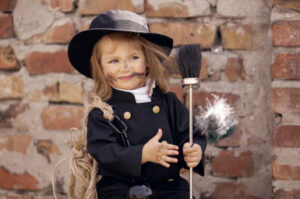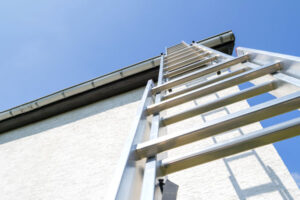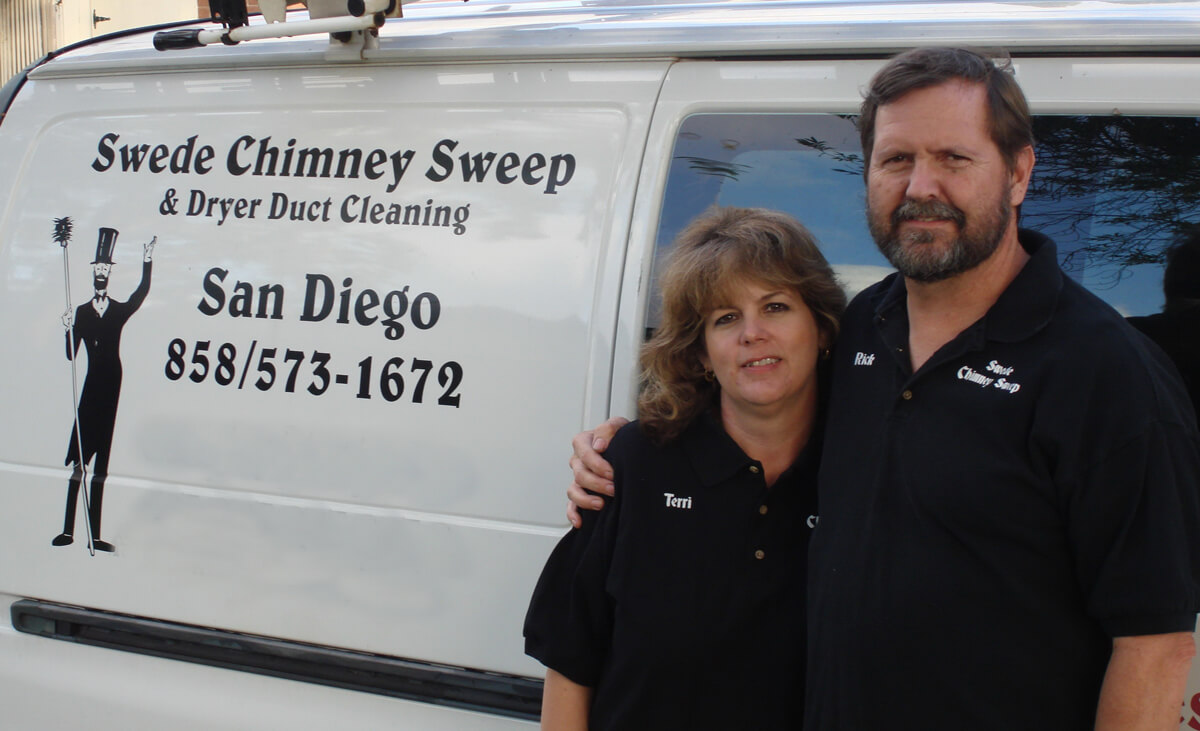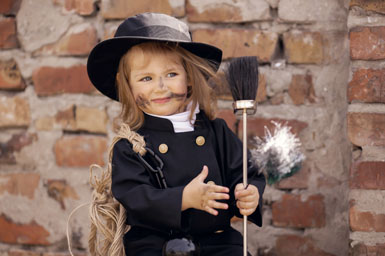 About once a year, I receive a phone call from a homeowner who wants to sweep his own chimney. The first thing I say is, “You will only do it once.” Here are 5 reasons why, if you try to sweep your own chimney, you will definitely call a professional chimney sweep the next time!
About once a year, I receive a phone call from a homeowner who wants to sweep his own chimney. The first thing I say is, “You will only do it once.” Here are 5 reasons why, if you try to sweep your own chimney, you will definitely call a professional chimney sweep the next time!
1) IMPROPER CHIMNEY SWEEP EQUIPMENT
The proper chimney sweep equipment is expensive. Some people mistakenly think that you can use a regular home vacuum cleaner to vacuum the fireplace ashes. Even a ‘shop vac’ vacuum cleaner will potentially create soot and dust to blow back into the room because standard vacuum cleaners don’t have the special filters that prevent the fine particulates of soot from getting through the filter. These fine particulates of sooty and oily dust can leave a dark residue on carpet, furniture and window coverings, creating permanent damage to your home. You will forever be cleaning the black sooty residue from every nook and crevice in your home. In addition, because home vacuums are not designed for soot, you will ruin your home vacuum cleaner.
Another situation is in the case of prefab fireplaces. These systems require a very specific type of brush. Using improper brushes or brushing with too much force will potentially disconnect or damage the pipe, requiring replacement of the flue pipe. Once the flue pipe is disconnected, you’ve compromised the joint and the entire flue system must be replaced.
2) CREATE EXPENSIVE DAMAGE
Not long ago, I received a call from a Do-It-Yourself homeowner who decided to clean out his free-standing stove. He took apart the pipe and realized that he had gotten in over his head because he didn’t know how to put the pipe back together. Because he took the pipe apart incorrectly, the pipe had to be replaced because he had compromised the joints in the pipe. In addition, when he took apart the pipe, soot went everywhere in his living room, creating extensive damage to the flooring, furniture and window coverings. The room even needed to be painted. Many times a professional chimney sweep doesn’t even have to disconnect the flue pipe because he has invested in the appropriate equipment and training to do the job properly and without any mess.
3) CREATE A MORE DANGEROUS SITUATION
Do-It-Yourself homeowners don’t understand how chimneys are built. Simply pushing the creosote down the flue pipe, the creosote lands in the offset area of the chimney behind the damper called the smoke shelf. Untrained homeowners don’t understand that the smoke shelf must be vacuumed out with the appropriate type of vacuum. If the smoke shelf is full of creosote, the homeowner has now moved the creosote, which is highly flammable, closer to the heat source in the firebox. That homeowner has now created more of a fire hazard than what he was trying to prevent.
4) SAFETY OF THE HOMEOWNER
 When a homeowner isn’t accustomed to being on a ladder or he doesn’t know how to safely get on and off a roof or how to walk on a roof without falling, the homeowner is endangering his life or potentially suffering a crippling injury.
When a homeowner isn’t accustomed to being on a ladder or he doesn’t know how to safely get on and off a roof or how to walk on a roof without falling, the homeowner is endangering his life or potentially suffering a crippling injury.
Homeowners may not have safe ladders for their roof. Professional chimney sweeps will have ladders tall enough. According to OSHA, “ladders must extend at least three feet above the point of support” which is where the ladder rests against the roof eave.
In addition, professional chimney sweeps have special “feet” attached to the bottom of the ladder called ladder “levelers” to prevent slippage, to stabilize the ladder and to adjust to uneven ground.
5) INSPECTING THE SYSTEM
The most important part of sweeping the chimney is inspecting the system. Because a homeowner hasn’t had the proper training and education, the Do-It-Yourselfer will not know what to look for after the system is swept. Will that homeowner recognize a cracked flue lining? Or a disconnected flue pipe? Or if a termination cap is blocking the flue pipe or not venting properly? And what about the chimney system’s general condition? It’s important to know what to look for. These are all potentially dangerous situations that a homeowner will not recognize.
HOW TO FIND A QUALIFIED CHIMNEY SWEEP
Make sure you use a chimney sweep certified through the Chimney Safety Institute of America (CSIA). CSIA Certification is a nationwide standard and provides the most highly trained chimney professionals who must sign a strict code of ethics. Here are 5 things to consider when hiring a local chimney sweep.
There are many maintenance projects a Do-It-Yourself homeowner can do on their own to save money, but when it comes to your safety and the safety of your family and your home, homeowners should leave certain maintenance projects to the experts. Know your limitations!

